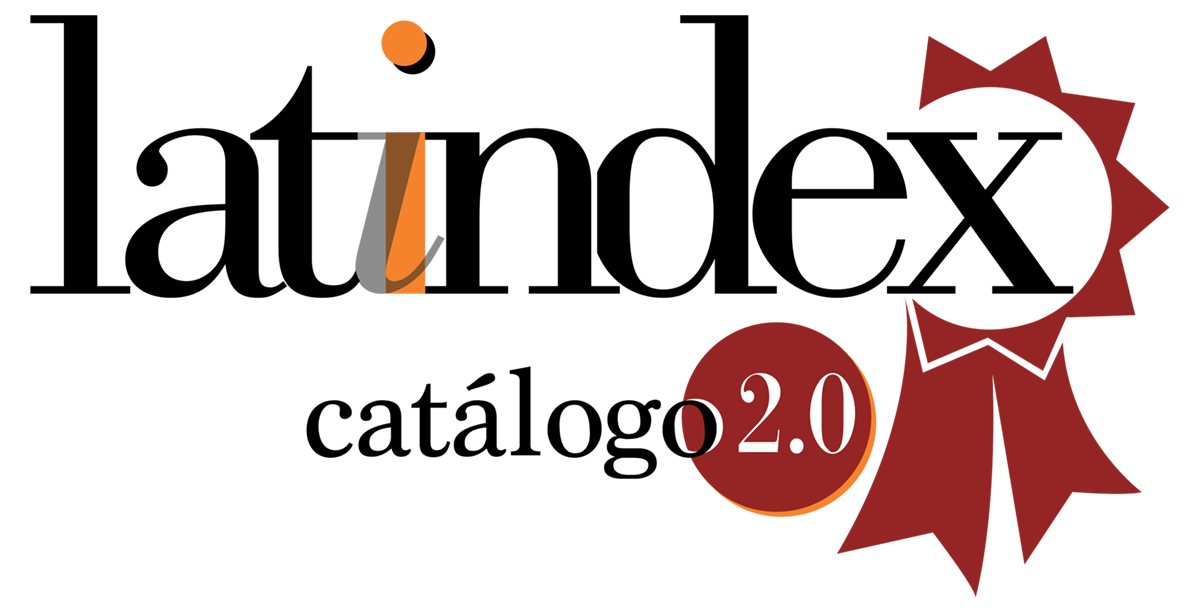Revisión Sistemática del Impacto de la Inteligencia Artificial en la Industria del Entretenimiento
Palabras clave:
Communication, Entertainment, Artificial Intelligence, Labor Market, Systematic Literature ReviewResumen
Este estudio, a través de una revisión sistemática en las bases Scopus[1] y Web of Science [WOS][2], encontró 159 artículos que cumplían con una serie de palabras clave sobre la Inteligencia Artificial [IA] y la industria del entretenimiento. Luego de dos filtros de lectura y cumplir con una serie de requerimientos para el cumplimiento del objetivo principal de examinar la influencia de la IA en la comunicación, específicamente, en el mundo del entretenimiento y su mercado laboral, se seleccionaron cinco estudios para su análisis en profundidad. Los resultados demuestran que existe un miedo inherente al avance de la tecnología y el posible reemplazo a gran escala que esto pueda significar, sin embargo, la corriente de pensamiento tiende a ser positiva cuando se trata de la IA y todo lo que conlleva, llegandose a considerar que se trata de una revolución inevitable que tendrá más efectos positivos que negativos. En suma, la IA abre un sinfín de oportunidades, pero necesita adaptación y control.
[1] Base de datos de citas y resúmenes completa, multidisciplinaria y fiable. Elsevier. https://www.elsevier.com/es-es/products/scopus
[2] Web of Science, propiedad de la empresa Clarivate, es la colección de bases de datos de referencias bibliográficas y citas de publicaciones periódicas: https://mjl.clarivate.com/search-results
Descargas
Referencias
Adamssen, J. (2020). Inteligencia artificial: Aprendizaje automático, aprendizaje profundo y procesos de automatización. Efalon Acies.
Anantrasirichai, N. y Bull, D. (2022). Artificial intelligence in the creative industries: a review. Artificial intelligence review, 55(1), 589-656. https://doi.org/10.1007/s10462-021-10039-7
Anaya, M. y Rodríguez, C. (2021). ABC de la inteligencia artificial (IA) aplicada en la salud. Medicina, 43(4), 493-496. https://doi.org/10.56050/01205498.1639
Bandi, A., Adapa, P. V. S. R., y Kuchi, Y. E. V. P. K. (2023). The Power of Generative AI: A Review of Requirements, Models, Input–Output Formats, Evaluation Metrics, and Challenges. Future Internet, 15(8), 260. https://doi.org/10.3390/fi15080260
Bender, S. (2024). Generative-AI, the media industries, and the disappearance of human creative labour. Media Practice and Education, 1-18. https://doi.org/10.1080/25741136.2024.2355597
Bogue, R. (2022). The role of robots in entertainment. Industrial Robot-The International Journal of Robotics Research and Application, 49(4), 667-671. https://doi.org/10.1108/IR-02-2022-0054
Castillo, C. (2008). Nuevas tecnologías en la industria del ocio y el entretenimiento en España. EOI Escuela de Organización Industrial.
Chan-Olmsted, S. M. (2019). A Review of Artificial Intelligence Adoptions in the Media Industry. International Journal on Media Management, 21(3-4), 193-215. https://doi.org/10.1080/14241277.2019.1695619
Choudhury, M., Prabhu, S., Sabri, A. K., y Marhoon, H. A. (2021, 19-20 de noviembre). Impact of artificial intelligence (AI) in the media and entertainment industry [Paper presentation]. UKI Toraja International Conference of Education and Science (UKITOICES) 2021, Toraja, Celebes, Indonesia.
Corvalán, J. G. (2019). El impacto de la Inteligencia Artificial en el trabajo. Revista de Direito Econômico e Socioambiental, 10(1), 35-51. https://doi.org/10.7213/rev.dir.econ.soc.v10i1.25870
Darvish, M. y Bick, M. (2023). The Role of Digital Technologies in the Music Industry-A Qualitative Trend Analysis. Information Systems Management, 41(2), 181-200. https://doi.org/10.1080/10580530.2023.2225129
Du, W. y Han, Q. (2021). Research on application of artificial intelligence in movie industry. [Paper presentation]. Fourth International Conference on Image, Video Processing, and Artificial Intelligence (IVPAI 2021) Shanghai, China https://doi.org/10.1117/12.2619500
Fui-Hoon-Nah, F., Zheng, R., Cai, J., Siau, K., y Chen, L. (2023). Generative AI and ChatGPT: Applications, challenges, and AI-human collaboration. Journal of Information Technology Case and Application Research, 25(3), 277-304. https://doi.org/10.1080/15228053.2023.2233814
Lachman, R. y Joffe, M. (2021). Applications of Artificial Intelligence in Media and Entertainment. En Musiolik y Cheok [Eds.]. Analyzing Future Applications of AI, Sensors, and Robotics in Society (pp. 201-220). IGI Global. https://doi.org/10.4018/978-1-7998-3499-1.ch012
Lin, T. F. y Chen, L. B. (2024). Harmony and algorithm: Exploring the advancements and impacts of AI-generated music. IEEE Potentials, 2-9. https://doi.org/10.1109/MPOT.2024.3433888
Lope-Salvador, V., Mamaqi, X., y Vidal-Bordes, J. V. (2020). La inteligencia artificial: desafíos teóricos, formativos y comunicativos de la datificación. Revista ÍCONO 14., 18(1), 58-88.https://doi.org/10.7195/ri14.v18i1.1434
Mantegna, M. (2024). ARTificial: Why Copyright Is Not the Right Policy Tool to Deal with Generative AI. The Yale Law Journal, 133, 1126-1174. https://www.yalelawjournal.org/pdf/MantegnaYLJForumEssay_w3bfyyp8.pdf
Martínez, I. (2022). Claves de la sociología del trabajo. La evolución del empleo y el trabajo en el mundo. Editorial UNED.
Meskys, E., Kalpokiene, J., Jurcys, P., y Liaudanskas, A. (2019). Regulating Deep Fakes: Legal and Ethical Considerations. Journal of Intellectual Property Law & Practice, 15(1), 24-31. https://ssrn.com/abstract=3497144
Mirbabaie, M., Brünker, F., Möllmann-Frick, N. R. J., y Stieglitz, S. (2022). The rise of artificial intelligence – understanding the AI identity threat at the workplace. Electronic Markets, 32(1), 73-99. https://doi.org/10.1007/s12525-021-00496-x
Nautiyal, R., Jha, R. S., Kathuria, S., Chanti, Y., Rathor, N., y Gupta, M. (2023, September 20-22). Intersection of Artificial Intelligence (AI) in Entertainment Sector [Paper presentation]. 2023 4th International Conference on Smart Electronics and Communication (ICOSEC), Trichy, Tramil Nadu, India.
Patrikakis, C. Z. y Murugesan, S. (2020). The New Needs of Professions. It Professional, 22(1), 43-46. https://doi.org/10.1109/MITP.2019.2963413
Portet, X. G. (2022). Las multinacionales del entretenimiento: Fútbol, diplomacia, identidad y tecnología. Editorial UOC.
Rampersad, G. (2020). Robot will take your job: Innovation for an era of artificial intelligence. Journal of Business Research, 116, 68-74. https://doi.org/10.1016/j.jbusres.2020.05.019
Ramsey, P. (Dir). (2018). Spider-Man: Un nuevo universo [Película animada]. Columbia Pictures, Sony Pictures Animation, Marvel Entertainment, Pascal Pictures, Arad Productions y Lord Miller Productions.
Sætra, H. S. (2023). Generative AI: Here to stay, but for good? Technology in Society, 75, 102372. https://doi.org/10.1016/j.techsoc.2023.102372
Schnarch, A. (2020). Creatividad e innovación. Alpha Editorial.
Sternberg, R. J. (2005). Creatividad e inteligencia. CIC. Cuadernos de Información y Comunicación, 10, 113-149. https://revistas.ucm.es/index.php/CIYC/article/view/CIYC0505110113A
Publicado
Número
Sección
Categorías
Licencia
Derechos de autor 2024 Revista Enfoques de la Comunicación

Esta obra está bajo una licencia internacional Creative Commons Atribución-NoComercial 4.0.



